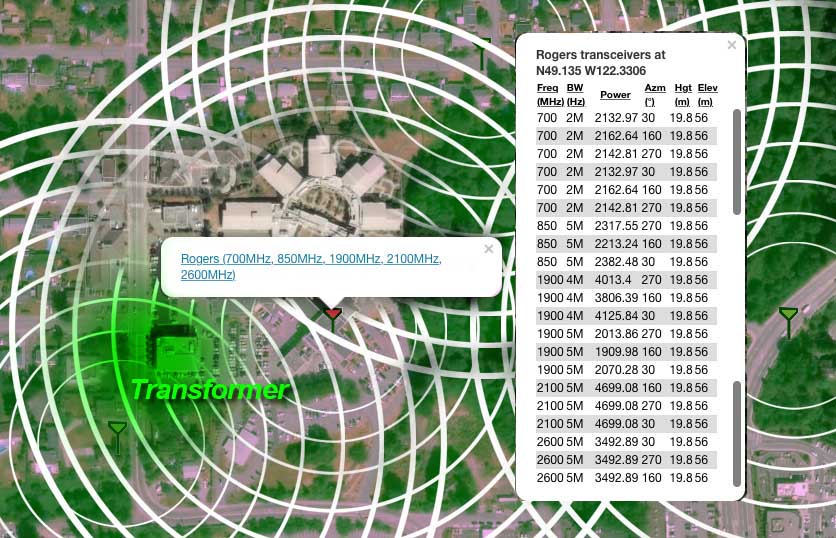Some medical lab workers in the Fraser Valley are demanding a more thorough study of the incidence of cancer at Mission Memorial Hospital, particularly of the lab where they work.
This follows the release last week of a provincial study that failed to show a link between the lab and the health of the employees — despite an unusually high incidence of cancer among them.
The alarm was first raised a few years ago, and it led to the study by the Occupational Health and Safety Agency for Healthcare in B.C.
Researchers looked at 57 people who worked in the lab between 1970 and 2004. That grouping included 10 of the cancer cases — including seven with breast cancer.
The study confirmed an unusually high number of cancer cases among the workers at Mission Memorial — eight times the normal cancer rates in B.C. But the researchers also said they cannot link the cause to anything in the lab.
- LINK: Cancer cluster study by the Occupational Health and Safety Agency for Healthcare in B.C. (.pdf)

Mission Memorial lab worker Anne Marie MacFarlane, who has breast cancer, said the study didn’t go far enough, and said that researchers should have tested the fumes from the hospital incinerator, which burned waste for 14 years.
She is now dealing with a second cancer diagnosis, this one in her left breast.
The B.C. Nurses’ Union is also dissatisfied with the report. Spokeswoman Linda Pipe said the study should have looked at workers outside the lab as well, noting that there are 26 other Mission Memorial Hospital employees who also have cancer.
“I think it pertains to the worksite itself and I think we need questions answered so that people feel safe going to work,” said Pipe.
Dr. George Astrakianakis, who was one of the researchers, says the group did the best it could with the information it had.
“Did we have access to all the information that was available?,” Astrakianakis asked. “Yes we did. Was that enough? Clearly not, because we didn’t come to the conclusion that it was work related. We couldn’t support the idea even though it was clear that there is a cluster.”
His agency has now received funding for a look at the bigger picture. It will begin a study on cancer rates among all hospital workers across the province.
https://www.cbc.ca/news/canada/british-columbia/mission-hospital-cancer-study-panned-1.593642

Mission Hospital Cancer Cluster : From Cell Towers or BC Hydro Transformers below Lab?
“The Supreme Court of Canada has ruled in favour of three Mission Memorial Hospital workers
who claimed they developed breast cancer as a result of conditions in their laboratory workplace.”
https://scc-csc.lexum.com/scc-csc/scc-csc/en/item/16042/index.do
https://scc-csc.lexum.com/scc-csc/scc-csc/en/16042/1/document.do
The Hospital moved the transformers out of the basement area to the west side of the parking lot. Knowing that the transformers would normally be placed close to the outside wall where the power lines enter the building, and knowing that the outside wall was under the lab area, and knowing that most cancer was in the lab area, it wouldn’t take a rocket scientist to figure the most likely cause. BC Cancer agency checked the place out and found “no particular cause”? Transformers were moved when the new building was being built on the hospital grounds south west of the hospital. The main power lines run along Hurd street, cross over Hurd to a pole, run underground to the transformers, which used to be in the building, on the same side as the labs.
B.C. healthcare workers win breast cancer claim against Fraser Health Authority
Three medical workers argued they developed breast cancer as a result of their jobs
The Supreme Court of Canada has ruled in favour of three British Columbia medical workers who argued they developed breast cancer as a result of their jobs.
The cases involve Katrina Hammer, Patricia Schmidt and Anne MacFarlane, who worked in a lab at Mission Memorial Hospital.
The Workers’ Compensation Board originally denied their applications for compensation benefits on the grounds their cancers were not occupational diseases.
But rulings by the Workers Compensation Administrative Tribunal in 2010 and 2011 overturned those decisions and linked the cancers to the workplace.
The British Columbia Court of Appeal, however, said the tribunal’s decisions were unreasonable because there was no evidence that the women’s cancer was caused by their work environment and the tribunal ignored expert advice to the contrary.
Enough evidence, court rules
But on Friday the Supreme Court ruled for the women, saying while the expert evidence might not have met a standard of scientific proof, it was enough to link their cancers and the workplace together.
“While the record on which that decision was based did not include confirmatory expert evidence, the Tribunal nonetheless relied upon other evidence which, viewed reasonably, was capable of supporting its finding of a causal link between the workers’ breast cancers and workplace conditions.”
But the court was not unanimous in its decision, with Justice Suzanne Côté filing a dissenting opinion.
“In my view, the original decision of the Workers’ Compensation Appeal Tribunal is patently unreasonable. On my reading, there is no evidence — and certainly no positive evidence — capable of supporting a causal link between the workers’ employment and the development of their respective disease,” she wrote.
https://www.cbc.ca/news/canada/british-columbia/health-care-workers-cancer-1.3651071
